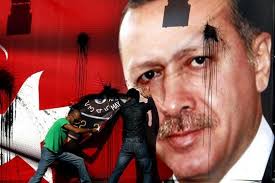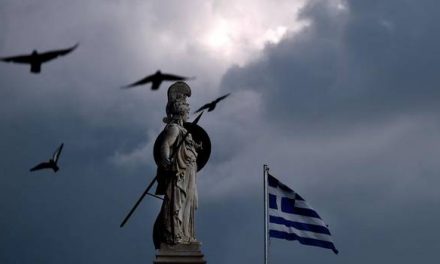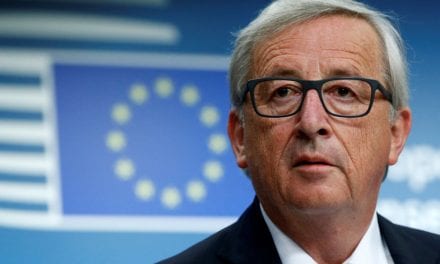With scholars in Turkey being imprisoned in their thousands, Gavin Tracey examines the political forces driving these increasingly totalitarian policies.
By Gavin Tracey, University Observer
On the 25th September, 2018, Sedat Laçiner, a world renowned political scientist, once described as a “rising star of Turkish academia”, and the youngest man ever appointed as a rector to a Turkish university, was jailed for 9 years and 4 months. In a letter sent to the Times Higher Education, his attorney wrote that the judge handed down the sentence before they had even read his defence. He was charged with alleged ties to the Gülen movement (followers of the exiled cleric Fethullah Gülen), despite no evidence corroborating this, as well as his denial of any wrongdoing. The only evidence brought against him was two columns he wrote for a Turkish newspaper, criticising the government’s “efforts to deviate Turkey from its western direction.”
The charge of being a “Gulenist” is frequently levelled against those who criticise the Turkish government, somewhat akin to being called a communist by McCarthy in 1950s America – a claim that can be asserted without evidence and can have an extreme negative impact upon your life. Similar scapegoats have been used by autocratic regimes throughout history. Laçiner’s case is by no means extraordinary in Turkey, where academic freedom is being eroded at an alarming pace.
Scholars at Risk, an “international network of institutions and individuals whose mission it is to protect scholars and promote academic freedom”, have studied the state of academic freedom in Turkey. In their “Free to Think 2017” report, they found that “authorities continue to take sweeping and targeted measures against Turkey’s higher education sector”. This was reiterated in their 2018 report of the same name, where they write “for the third consecutive year, SAR has reported a high volume of attacks by Turkish authorities against the country’s higher education communities, directly impacting more than 880 university scholars, students, and staff.”
Annabelle Wilmott, from Scholars at Risk, told The University Observer that “the Turkish government is using imprisonments, prosecutions, dismissals, expulsions, and travel restrictions to punish and restrict academic and student expression”
According to the reports, since the failed coup in 2016, at “least 990 scholars, staff, and students have been detained or arrested, with warrants served for at least 318 more.” On top of this, 5,717 academics in 117 universities have been sacked, as well as 15 universities being shut down altogether. According to Turkish press, the Ministry of Justice announced at the end of 2016 that the number of detainees in prison as a result of purges and mass arrests after the coup, was almost 70,000.
What exactly is going on in Turkey? It is important to remember that only a decade ago, it was a country that was seen as having made significant progress in various areas. The frequent military coups that toppled Turkish governments in 1960, 1971, 1980, and 1997, frequently led to the rewriting of the Turkish constitution, and the instalment of new governments. This changed in the early 2000s, when Turkey’s attempts to join the EU had left the military with little power. EU reform packages had reduced the power of the military in civilian affairs. Westernisation and modernisation were seen as the guiding forces in Turkish politics from the late 1990s onwards, with Turkey on the way to joining the EU and becoming a westernised liberal democracy.
“Former mayor of Istanbul, former Prime Minister, and now President of Turkey, Erdoğan has been eroding many of Turkey’s democratic institutions since his rise to power, purging the judiciary, and filling courts with the party faithful.”
The reasons as to why Turkey veered so violently off their charted course is multifaceted and complex, but it is safe to say that it would not have happened without one man; Recep Tayyip Erdoğan. Former mayor of Istanbul, former Prime Minister, and now President of Turkey, Erdoğan has been eroding many of Turkey’s democratic institutions along his rise to power, purging the judiciary, and filling courts with the party faithful. He has been using his position as President to change the very nature of the Turkish presidency from a largely ceremonial role, to one with its own private military wing, and vast executive powers. As is the case in nearly all authoritarian states, charismatic and powerful leaders, such as Erdoğan, dominate the political landscape.
In order to consolidate power, Erdoğan has sought to silence all dissent, which is where the attacks on academia stem from. If Erdoğan’s goal is to become an autocratic leader, it makes perfect sense to start silencing the group that all autocrats silence first – teachers, academics and students. Control what is taught in the classrooms and universities across the country, and the ability to hold on to power becomes that much easier. These sorts of attempts have been increasing as of late; with the AFD in Germany setting up a website where children can report if their teachers say anything negative about the party, and Orban in Hungary defunding certain university courses for ideological reasons. Clare Robinson, also from Scholars at Risk, told The University Observer “the Turkish government is attacking students and academics to suppress critical voices, and to maintain power.”
This began before the failed coup of 2016, when hundreds of academics signed the “Academics for Peace” petition, a call to end the brutal treatment of the Kurdish people by the Turkish government. This resulted in 27 academics being arrested over alleged “terror propaganda”. Since the coup, things have only gotten worse.
Despite the repeated attempts to silence those who are critical of the Erdoğan regime, many are cautiously optimistic for the future. Clare Robinson, speaking on Turkey’s future, told us “this is hope of change, yes, because there are universities, scholars, students, individuals within and outside of Turkey who continue to seek the right to think, question, and share ideas.” Other universities across the globe are providing temporary positions to Turkish scholars, allowing them to continue their work. This alone is not enough says Robinson, who says that “we must encourage a robust response to these attacks on higher education communities, at the international and state levels, from within higher education itself, and from civil society and the public at large.”



















